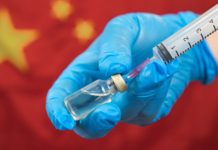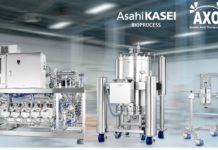Alexion Pharmaceuticals, Inc announced that Japan’s Ministry of Health, Labour and Welfare has approved Kanuma for the treatment of patients of all ages in Japan with lysosomal acid lipase deficiency.
Kanuma, an innovative enzyme replacement therapy (ERT), is the first therapy approved in Japan for the treatment of patients with LAL-D, a genetic and progressive ultra-rare metabolic disease in which patients suffer multi-organ damage and premature death. Alexion expects that initial patients with LAL-D in Japan will start commercial treatment with Kanuma in Q3 2016.
“We are gratified that patients of all ages in Japan who suffer from LAL-D will now have the first approved therapy that addresses the underlying cause of this devastating disease,” said David Hallal, Chief Executive Officer of Alexion. “Importantly, the label notes the significant survival benefit in infants with LAL-D who were treated with Kanuma, as well as reductions in important markers of liver disease and significant improvements in lipid parameters in pediatric and adult patients. We look forward to working with healthcare authorities to bring Kanuma to patients with LAL-D and their physicians in Japan as quickly as possible.”
LAL-D is a genetic, chronic, and progressive metabolic disease associated with significant morbidity and premature mortality.1 It is an ultra-rare disease, which is defined as a disease that affects fewer than 20 patients per one million of the general population.2 Patients with LAL-D can experience a rapid onset of life-threatening disease manifestations, and without treatment, the youngest patients with LAL-D face rapid disease progression that is typically fatal within a matter of months. In addition, similar to other liver diseases, many patients may be asymptomatic until they experience a severe consequence of the disease. LAL-D is caused by genetic mutations that result in a marked decrease or loss in vital LAL enzyme activity in the lysosomes across multiple body tissues, leading to the chronic build-up of cholesteryl esters and triglycerides in the liver, blood vessel walls, and other organs.1,3
“I am very pleased that Kanuma has been approved in Japan for the treatment of patients with LAL-D, a devastating ultra-rare disease for which there have previously been no effective or approved treatments. Unfortunately, many children and adults with LAL-D are undiagnosed or misdiagnosed for many years, and suffer progressive organ damage leading to severe and life-threatening outcomes,” said Dr. Yoshikatsu Eto, Director at Advanced Clinical Research Center & Asian LSD Center, Institute of Neurological Disorders. “Today’s approval of Kanuma is a momentous occasion for patients with LAL-D, their families, and the medical community in Japan, which now has the first approved treatment to replace the deficient LAL enzyme and address the life-threatening manifestations of this disease.”
Kanuma is also approved for the treatment of patients with LAL-D in the United States and European Union.
Clinical Data4
The approval of Kanuma in Japan was based on data from two clinical studies and a supporting open-label extension study comprising infant, pediatric, and adult patients with LAL-D, including two Japanese patients. Study results showed significant benefit in terms of survival beyond 12 months (67%, or 6 out of 9) in non-Japanese patients with rapidly progressive disease presenting from infancy, compared with an untreated historical control in which no survival over 8 months after birth was reported. In pediatric and adult patients with LAL-D (ages 4 to 58 years), treatment with Kanuma was associated with a significantly greater proportion of patients achieving ALT normalization compared with placebo (31 percent vs. 7 percent, p=0.0271). Treatment with Kanuma also resulted in larger reductions from baseline in liver fat content compared to treatment with placebo. In addition, treated patients had significant improvements in lipid parameters, including LDL-C, HDL-C, non-HDL-C, and triglycerides, compared to placebo. Continued improvements in ALT, LDL-C and HDL-C were seen in patients treated with Kanuma beyond 20 weeks.
The most commonly reported adverse events observed in Japanese and non-Japanese patients in clinical studies included pyrexia, abdominal pain, diarrhea, urticaria, and vomiting. Urticaria was reported in two Japanese patients.
About Lysosomal Acid Lipase Deficiency (LAL-D)
LAL-D is a genetic, chronic, and progressive ultra-rare metabolic disease associated with significant morbidity and premature mortality. In patients with LAL-D, genetic mutations result in a marked decrease or loss in activity of the vital LAL enzyme. This leads to marked accumulation of cholesteryl esters and triglycerides in vital organs, blood vessels, and other tissues, resulting in progressive and multi-organ damage including fibrosis, cirrhosis, liver failure, accelerated atherosclerosis, cardiovascular disease, and other devastating consequences.1,3
LAL-D affects patients of all ages with clinical manifestations from infancy through adulthood and may have sudden and unpredictable clinical complications. Infants experience profound growth failure, liver fibrosis, and cirrhosis, with a median age of death at 3.7 months.5 In an observational study, approximately 50% of children and adults with LAL-D progressed to fibrosis, cirrhosis, or liver transplant in 3 years.6 The median age of onset of LAL-D is 5.8 years, and the disease can be diagnosed with a simple blood test.7,8
About Kanuma® (sebelipase alfa)
Kanuma® (sebelipase alfa) is an innovative enzyme replacement therapy that addresses the underlying cause of lysosomal acid lipase deficiency (LAL-D) by reducing substrate accumulation in the lysosomes of cells throughout the body. In clinical studies, treatment with Kanuma improved survival in infants with LAL-D and led to significant reductions in ALT and liver fat content, as well as significant improvements in lipid parameters, in children and adults with LAL-D.
Kanuma is approved in the United States, European Union, and Japan.
IMPORTANT SAFETY INFORMATION
WARNINGS AND PRECAUTIONS
Hypersensitivity reactions, including anaphylaxis, have been reported in KANUMA-treated patients. In clinical trials, 3 of 106 (3%) patients treated with KANUMA experienced signs and symptoms consistent with anaphylaxis. These patients experienced reactions during infusion with signs and symptoms including chest discomfort, conjunctival injection, dyspnea, generalized and itchy rash, hyperemia, swelling of eyelids, rhinorrhea, severe respiratory distress, tachycardia, tachypnea, and urticaria. Anaphylaxis has occurred as early as the sixth infusion and as late as 1 year after treatment initiation.
In clinical trials, 21 of 106 (20%) KANUMA-treated patients, including 9 of 14 (64%) infants and 12 of 92 (13%) pediatric patients, 4 years and older, and adults experienced signs and symptoms either consistent with or that may be related to a hypersensitivity reaction. Signs and symptoms of hypersensitivity reactions, occurring in two or more patients, included abdominal pain, agitation, fever, chills, diarrhea, eczema, edema, hypertension, irritability, laryngeal edema, nausea, pallor, pruritus, rash, and vomiting. The majority of reactions occurred during or within 4 hours of the completion of the infusion. Patients were not routinely pre-medicated prior to infusion of KANUMA in these clinical trials.
Due to the potential for anaphylaxis, appropriate medical support should be readily available when KANUMA is administered.
Hypersensitivity to Eggs or Egg Products: Consider the risks and benefits of treatment in patients with known systemic hypersensitivity reactions to eggs or egg products.
ADVERSE REACTIONS
The most common adverse reactions are: In patients with Rapidly Progressive Disease Presenting within the First 6 Months of Life (≥30%): diarrhea, vomiting, fever, rhinitis, anemia, cough, nasopharyngitis, and urticaria. In pediatric and adult patients (≥8%): headache, fever, oropharyngeal pain, nasopharyngitis, asthenia, constipation, and nausea.
About Alexion
Alexion is a global biopharmaceutical company focused on developing and delivering life-transforming therapies for patients with devastating and rare disorders. Alexion developed and commercializes Soliris® (eculizumab), the first and only approved complement inhibitor to treat patients with paroxysmal nocturnal hemoglobinuria (PNH) and atypical hemolytic uremic syndrome (aHUS), two life-threatening ultra-rare disorders. As the global leader in complement inhibition, Alexion is strengthening and broadening its portfolio of complement inhibitors, including evaluating potential indications for eculizumab in additional severe and ultra-rare disorders. Alexion’s metabolic franchise includes two highly innovative enzyme replacement therapies for patients with life-threatening and ultra-rare disorders, Strensiq® (asfotase alfa) to treat patients with hypophosphatasia (HPP) and Kanuma® (sebelipase alfa) to treat patients with lysosomal acid lipase deficiency (LAL-D). In addition, Alexion is advancing the most robust rare disease pipeline in the biotech industry, with highly innovative product candidates in multiple therapeutic areas. This press release and further information about Alexion can be found at: www.alexion.com.
Forward-Looking Statements
This news release contains forward-looking statements, including statements related to potential medical benefits of Kanuma® (sebelipase alfa) for lysosomal acid lipase deficiency (LAL-D). Forward-looking statements are subject to factors that may cause Alexion’s results and plans to differ from those expected, including, for example, decisions of regulatory authorities regarding marketing approval or material limitations on the marketing of Kanuma for LAL-D, delays in arranging satisfactory manufacturing capabilities and establishing commercial infrastructure for Kanuma for LAL-D, the possibility that results of clinical trials are not predictive of safety and efficacy results of Kanuma in broader or different patient populations, the risk that third party payors (including governmental agencies) will not reimburse for the use of Kanuma at acceptable rates or at all, the risk that estimates regarding the number of patients with Kanuma and observations regarding the natural history of patients with Kanuma are inaccurate, and a variety of other risks set forth from time to time in Alexion’s filings with the Securities and Exchange Commission, including but not limited to the risks discussed in Alexion’s Annual Report on Form 10-K for the period ended December 31, 2015 and in Alexion’s other filings with the SEC. Alexion does not intend to update any of these forward-looking statements to reflect events or circumstances after the date hereof, except when a duty arises under law.
References
1. Bernstein DL, et al. Cholesteryl ester storage disease: review of the findings in 135 reported patients with an underdiagnosed disease. J Hepatol. 2013;58:1230-43. doi:10.1016/j.jhep.2013.02.014.
2. REGULATION (EU) No 536/2014 OF THE EUROPEAN PARLIAMENT AND OF THE COUNCIL of 16 April 2014 on clinical trials on medicinal products for human use, and repealing Directive 2001/20/EC. http://eur-lex.europa.eu/legal-content/EN/TXT/PDF/?uri=CELEX:32000R0141&qid=1421232987002&from=EN
3. Reiner Z, et al. Lysosomal acid lipase deficiency – an under-recognized cause of dyslipidemia and liver dysfunction. Atherosclerosis. 2014;235:21-30. doi:10.1016/j.atherosclerosis.2014.04.003.
4. Kanuma® Japan Prescribing Information, 2016.
5. Jones SA et al. Rapid progression and mortality of lysosomal acid lipase deficiency presenting in infants. Genetics in Medicine. 27 August 2015. doi:10.1038/gim.2015.108.
6. Data on file, Alexion.
7. Burton BK, Deegan PB, Enns GM, et al. Clinical Features of Lysosomal Acid Lipase Deficiency. J Pediatr Gastroenterol Nutr. 2015;619-25. doi: 10.1097/MPG.0000000000000935.
8. Hamilton J, et al. A new method for the measurement of lysosomal acid lipase in dried blood spots using the inhibitor Lalistat 2. Clin Chim Acta. 2012;413:1207-10. doi:10.1016/j.cca.2012.03.019.
Contact:


























